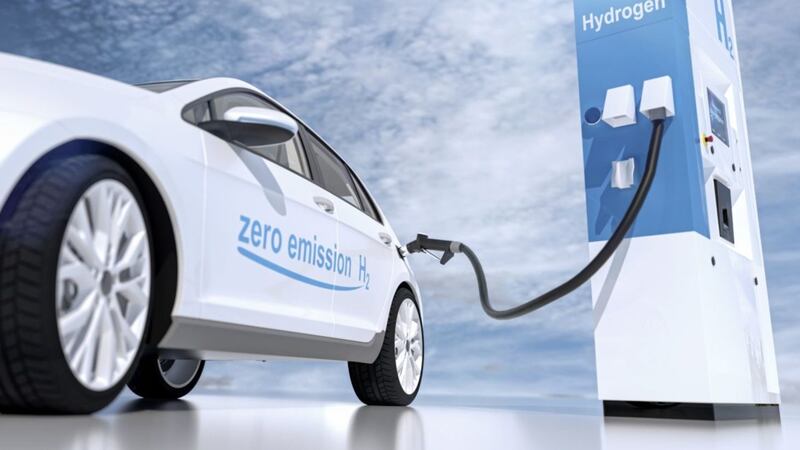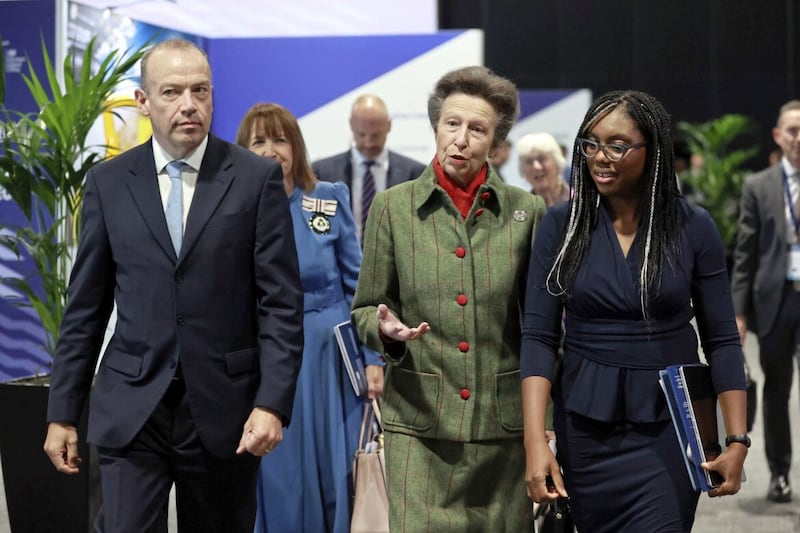WITH a historic G7 summit rolling into Cornwall in just a few weeks’ time, the CBI was proud last month to convene the B7 summit, of global business leaders from across the G7 countries along with India, Australia, South Africa and South Korea.
While recovery from the pandemic was front and centre of the of the discussion, there was also clear recognition of how deeply intertwined climate and biodiversity goals are to building back better from the pandemic.
In both rebuilding from the devastation of Covid-19 and leading the charge to combat the climate crisis, this year’s G7 feels more significant than ever before. We face pressing global challenges that require a coordinated international response.
The B7 summit itself was testament to the commitment of the private sector to joining the climate fight. Companies of all sizes and sectors are ready to stand up and be counted by supporting governments worldwide to decarbonise and meet net-zero commitments.
As the UK hosts both the G7 and COP26, business understands the unique opportunity to be a global leader, building consensus and mobilising action on a scale never seen before. The companies I speak to every day recognise these responsibilities, but they also know that advocacy on the international stage begins at home.
You just have to look at the enormous strides made in recent years, through the steady shift to decarbonised power, to firms around the country developing game-changing carbon capture and storage hubs as well as electric car sales increasing exponentially. Yet to deliver a just green transition by 2050, we must go further and faster.
Decisive action over the next decade will be crucial to avoid catastrophic impacts for the environment and for communities around the world. That demands even closer partnership between government and business. By standing shoulder-to-shoulder we can complete the transition to low carbon power and further reduce emissions across transport, industry and buildings. We can also reinforce the UK’s position as a global centre for sustainable finance by boosting issues of green bonds and carbon offset trading.
With concerted effort and a bold vision for the economy, the tide of decarbonisation can be a catalyst to reset society for the better. Furthermore, a set of enormous prizes await the UK upon delivery on that promise: creating a greener, more innovative economy founded on strong global ties – and one that helps Northern Ireland to thrive.
But that’s not all. CBI research also shows that turbo-charging the UK’s net-zero plans would bring significant benefits for business – providing the chance to offer customers new products and services. Sectors critical to spurring the green transition could expand exports to important markets, with higher electric vehicle and battery exports to the EU potentially worth £18 billion in additional revenues.
Meanwhile, the production of electrolysers that would underpin future hydrogen economies stands out as an opportunity worth £8 billion in additional revenues from higher exports to the EU.
But those plentiful opportunities are time limited. Delay and they could easily go elsewhere. To avoid missing out, the UK Government must seize the moment by building on the ambition outlined in the ten-point plan for a Green Industrial Revolution and be bold in leading by example ahead of COP26.
So what are our next steps?
With new Northern Ireland energy policy soon on the horizon, and opportunities to reform key enablers of sustainable growth like the planning system, we have the chance now to deliver meaningful long term change.
Let’s deliver a net-zero strategy that cuts our global climate impact and sets a new target to reduce consumption emissions. Let’s build more UK-wide gigafactories to support electric vehicles. Let’s carve a clear path to market for hydrogen, and incentivise energy efficiency improvements over the long-term and build upon our renewables infrastructure to capitalise on our strengths.
Doing all of that would send a clear signal about unlocking the business investment needed for revolutionary green technologies – ones that also deliver for business and the economy with their high export potential. A green revolution can also bolster our workforce, by equipping workers with the green skills they need to take advantage of these plentiful opportunities, creating net 240,000 UK-wide jobs by 2030.
The fact is that there’s much more to be done, to tackle the climate emergency, to rebalance the economy, and to create a fairer society where everyone shares in prosperity. That’s why the CBI’s new economic strategy is so important. It lays down a clear marker for the way business and government can work together across the UK to tackle these challenges – with business using its experience, capacity and expertise to play a leading role.
But collaboration will be key. The Executive and the Assembly must work in lock step with industry and stakeholders to maximise outcomes. Declaring a climate emergency and legislating for climate change are laudable steps, but policymakers must engage urgently with our world leading agri-food industry to protect jobs and food security, and also mitigate the risks of carbon leakage.
Ambitious climate policies can’t just be wished into action; that’s why so many Northern Irish firms are making headway on climate plans. But they need help, and that means Government and the Executive helping to clear the path for sectors to decarbonise.
Faltering is simply not an option because the consequences are stark. Get this right and we protect the planet for future generations. Get it wrong and Northern Ireland loses the race to net-zero. Now is the time to seize the moment.
:: Angela McGowan is CBI Northern Ireland director








